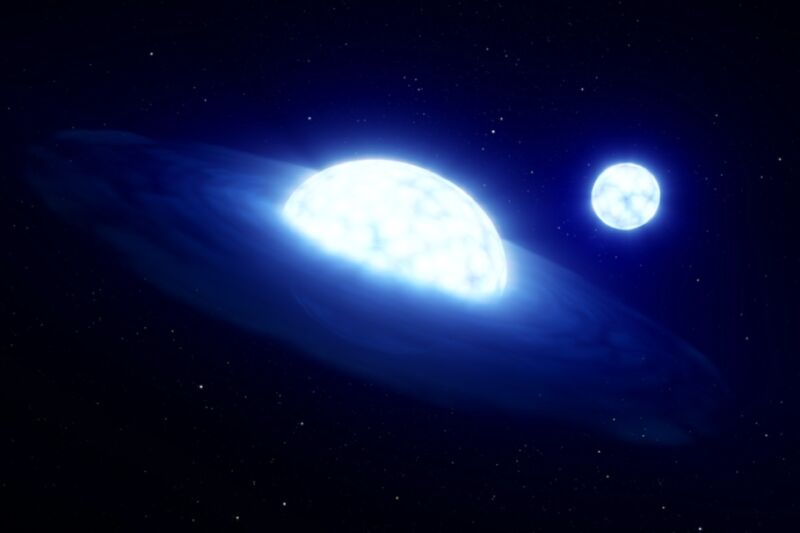Astronomers: “Vampire” star stripped the atmosphere from its binary partner

Enlarge (credit: ESO/L. Calcada)
Back in 2020, astronomers discovered an unusual star system just 1,000 light years from Earth. However, two different teams disagreed on the nature of the system, which was dubbed HR 6819. One team argued that it was looking at a trinary grouping with two stars orbiting a black hole. The other team thought HR 6819's properties could just as easily be explained by a two-star system without a black hole.
To resolve the issue, the two groups collaborated on collecting additional observational data. The result: HR 6819 is indeed a binary system with no black hole, according to a new paper published in the journal Astronomy and Astrophysics. But HR 6819 is nonetheless a rarity: astronomers captured the binary system just after one star had stripped its partner of its atmosphere in a process known as "stellar vampirism."
As we previously reported, scientists think there are far more black holes in the Universe than we have discovered to date-probably hundreds of millions of them, given the age of our Universe. We have discovered so few black holes because, instead of being able to observe them directly, we can only infer their presence by their effect on surrounding matter. A black hole's gravitational effects can influence the orbits of nearby stars, for example, or infalling matter can form an accretion disk of hot gas rapidly orbiting the black hole, emitting powerful X-rays. Or an unfortunate star will get too close to a black hole and be torn apart for its trouble, with the infalling remnants also accelerating and heating up to emit X-rays into space.
Read 9 remaining paragraphs | Comments